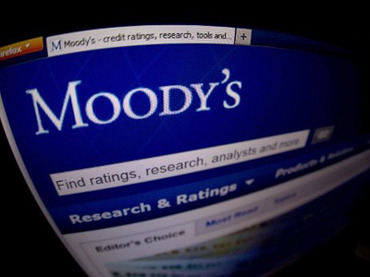
(AFP Photo)
By Doaa Farid
Ongoing economic and political uncertainty since the 25 January Revolution has led Moody’s to maintain its negative outlook and Caa1 sovereign rating on Egypt, the credit-rating agency reported on 3 October.
Moody’s added that any upward movement in the rating is “unlikely over the near term.”
According to the report, political tensions have undermined the implementation of fiscal and economic reforms which could be credit positive.
“Economic growth, political stability and societal consensus are not stable yet, and these are among the components [needed] to increase the rating of Egypt,” said professor of finance Alaa Mostafa, adding that the report is normal and expected.
Mostafa expects that after the first elections in the interim period, Egypt’s credit rating will increase and will have a positive outlook.
“Political uncertainty and turmoil in Egypt since the eruption of the revolution in January 2011 remain a constraint on the country’s credit profile,” the report read, noting that foreign direct investment has collapsed, decreasing real GDP growth.
“Fiscal deficits have widened sharply as heightened social tensions led to higher wage and subsidy expenditures, while weak economic conditions have also depressed [Egypt’s] revenue performance,” the report said, adding that frequent political reshuffles have impaired the government’s ability to gain the support of the IMF for policy reform and balance of payments assistance.
The interim cabinet announced an economic stimulus plan in August, which will aim to create a 3% growth rate over the current fiscal year, “maintain social justice and create new job opportunities.”
On 19 August, Moody’s stated that market-based risk has deteriorated amid the violent dispersal of pro-Morsi sit-ins in Rabaa Al-Adaweya and Nahda squares, adding that investors are “understandably concerned” about the impact of the civil unrest on the already fragile economy.
Earlier in July, Moody’s affirmed Egypt’s Caa1 rating, the sixth downgrade since January 2011. “The maintenance of the negative outlook on Egypt’s Caa1 rating is driven by Moody’s view of the country’s considerable economic and political challenges,” the ratings agency said.
Moody’s previously stated that it considers Gulf aid a credit positive since it “will have the immediate effect of offsetting pressures on Egypt’s balance of payments by substantially bolstering official foreign exchange reserves.”
Following the ouster of former President Mohamed Morsi on 3 July, Gulf countries pledged financial aid packages to help boost the economy, including $5bn from Saudi Arabia, $3bn from the UAE and $4bn from Kuwait, in form of cash grants, deposits and petroleum products.
This March, Moody’s cut Egypt’s credit rating by one notch from B3 to Caa1, which it said meant it sees nearly a 10% chance of Egypt defaulting on its debt over the next year and slightly less than a 40% chance of a default within five years.
In a press conference in August, Minister of Planning Ashraf El-Araby said he considered Egypt’s credit rating downgrading eight times in two years as a “first of its kind in the history.”



